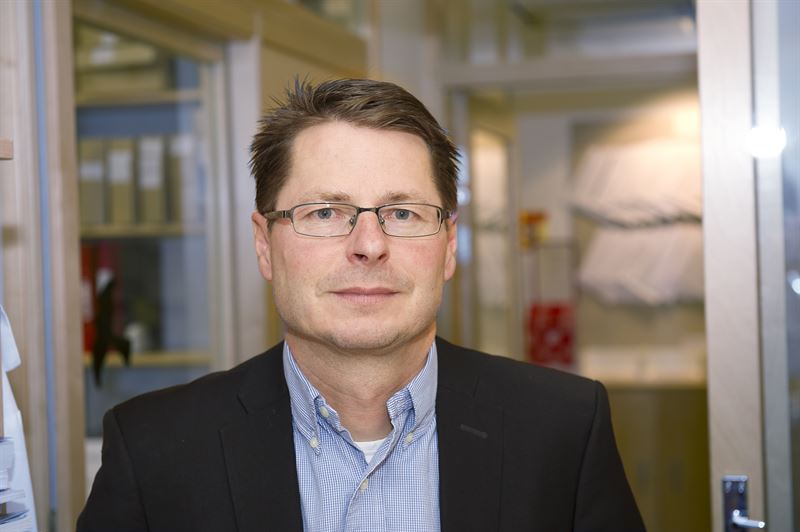Successful NK cell-based immunotherapy for leukaemia

[PRESS RELEASE 2018-02-15] Researchers at Karolinska Institutet in Sweden have explored NK cell-based immunotherapy on patients with treatment-resistant leukaemia. The study, which is published in the scientific journal Clinical Cancer Research, shows that the new therapy is effective against several types of leukaemia.
NK (natural killer) cells are a special type of white blood cell discovered at Karolinska Institutet in the 1970s that can recognise and kill cancer cells. In recent years, much knowledge has been generated on the biology of the cells and their ability to recognise tumour cells. Research into immunotherapy, in which the immune system is stimulated to attack cancer cells, has also made great strides forward. The potential of NK cells as a form of immunotherapy has not, however, been fully explored.
Researchers at Karolinska Institutet have now tested an NK cell-based immunotherapy on 16 patients with treatment-resistant leukaemia of the types myelodysplastic syndrome (MDS), acute myeloid leukaemia (AML) or transitional MDS/AML phases. The patients were treated with activated NK cells from related donors.
Six of the patients displayed objective responses to the treatment, some even attaining complete remission and thus becoming symptom-free. Five of these six patients became healthy enough to undergo curative stem cell transplantation, an intervention that was not possible before the NK cell treatment. Three of them have now survived for over three years, one for over five. The infusion of NK cells produced no serious adverse effects.
“Our study shows that patients with MDS, AML and MDS/AML can be treated with NK cell-based immunotherapy and that the therapy can be highly efficacious,” says Professor Hans-Gustaf Ljunggren at Karolinska Institutet’s Department of Medicine in Huddinge, who initiated and led the study with departmental colleague Professor Karl-Johan Malmberg.
“The results open the way for new clinical studies, where there is potential for further improvements to study design that includes producing the next generation of NK cell-based immunotherapy,” says Andreas Björklund, specialist doctor at Karolinska University Hospital, who had clinical responsibility for the patients treated using the new therapy.
The study was financed by several bodies, including the Tobias Foundation, the Swedish Cancer Society, the Swedish Research Council and Stockholm County Council. Jeffrey S. Miller and Karl-Johan Malmberg serves on the Scientific Advisory Board of Fate Therapeutics. Hans-Gustaf Ljunggren serves on the Scientific Advisory Board of CellProtect Nordic Pharmaceuticals and HOPE Bio-Sciences; on the Board of Directors of Vycellix; and is a collaborator with Fate Therapeutics.
Publication: “Complete Remission with Reduction of High-risk Clones following Haploidentical NK Cell Therapy against MDS and AML”, Andreas T. Björklund, Mattias Carlsten, Ebba Sohlberg, Lisa L. Liu, Trevor Clancy, Mohsen Karimi, Sarah Cooley, Jeffrey S. Miller, Monika Klimkowska, Marie Schaffer, Emma Watz, Kristina Wikström, Pontus Blomberg, Björn Engelbrekt Wahlin, Marzia Palma, Lotta Hansson, Per Ljungman, Eva Hellström-Lindberg, Hans-Gustaf Ljunggren, Karl-Johan Malmberg. Clinical Cancer Research, online 14 February 2018, doi: 10.1158/1078-0432.CCR-17-3196.
For more information, please contact:
Andreas Björklund, specialist doctor, researcher
Department of Medicine, Huddinge, Karolinska Institutet
Phone: +46 708 112 312
Email: andreas.bjorklund@ki.se
Hans-Gustaf Ljunggren, professor
Department of Medicine, Huddinge, Karolinska Institutet
Phone: +46 70 533 46 99
Email: hans-gustaf.ljunggren@ki.se
Karl-Johan Malmberg, professor
Oslo University Hospital
Department of Medicine, Huddinge, Karolinska Institutet
Phone: +47 453 90 926
Email: kalle.malmberg@ki.se
Karolinska Institutet is one of the world’s leading medical universities. Its vision is to significantly contribute to the improvement of human health. Karolinska Institutet accounts for the single largest share of all academic medical research conducted in Sweden and offers the country’s broadest range of education in medicine and health sciences. The Nobel Assembly at Karolinska Institutet selects the Nobel laureates in Physiology or Medicine.
Tags:




